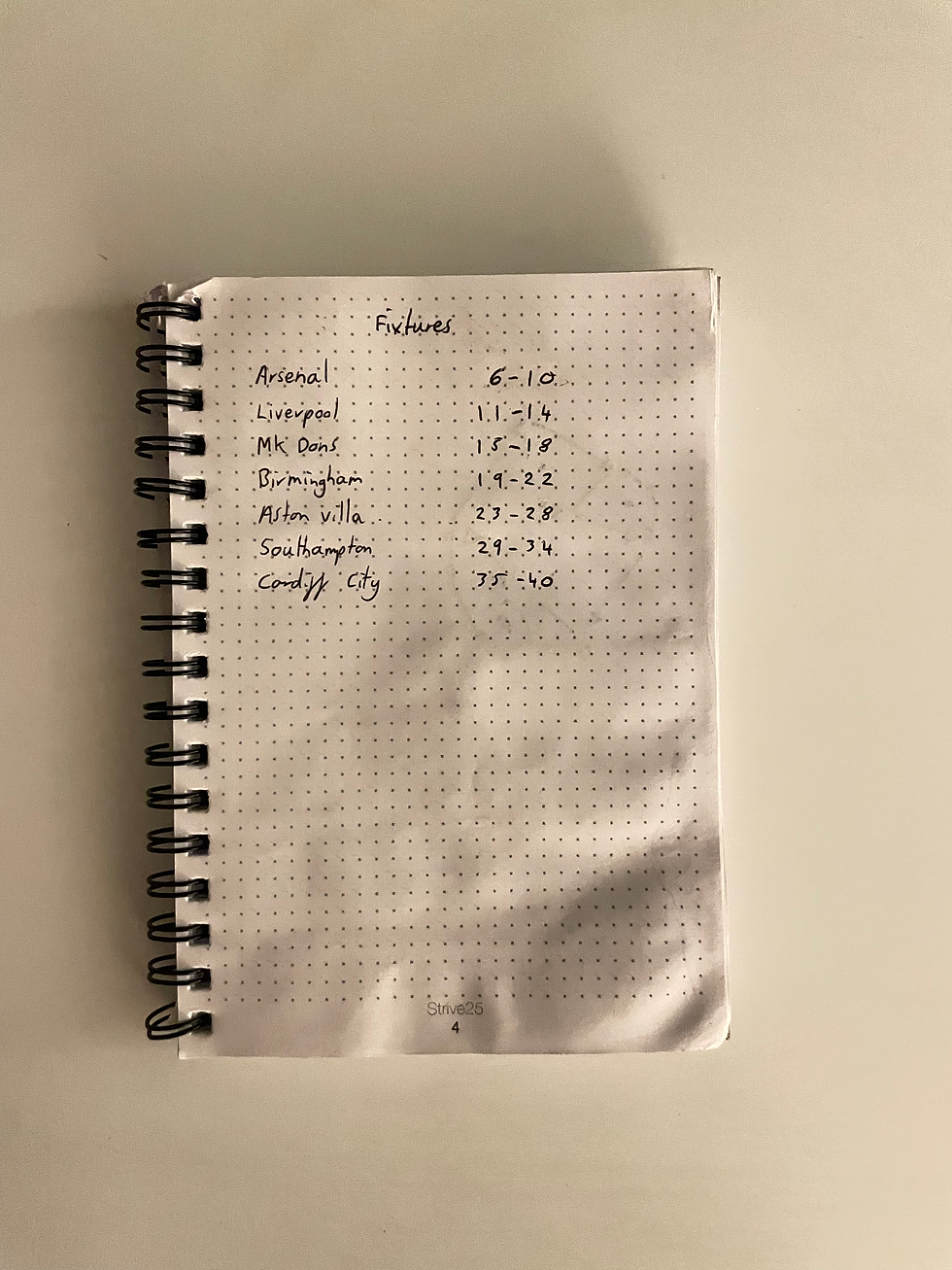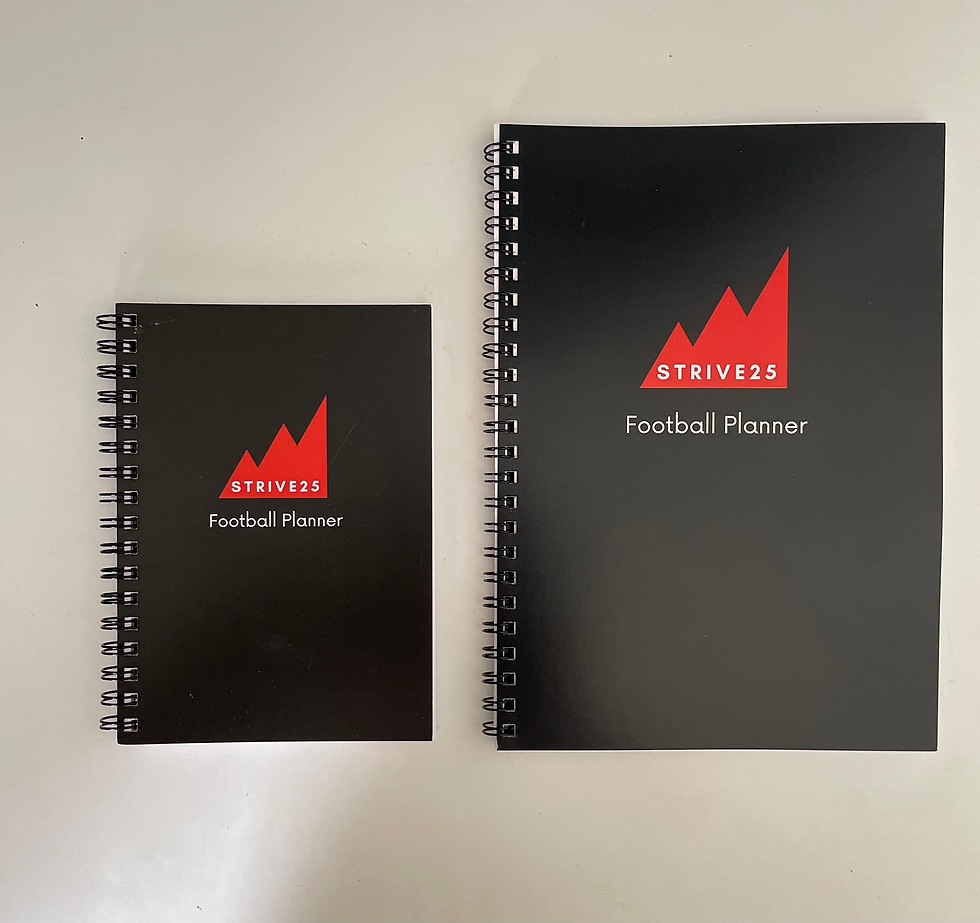Take Note
- Strive25 Admin
- Sep 9, 2023
- 3 min read
Ever wondered what Premier League managers are scribbling on their notebooks during games?
Do you take notes during games?
0%Yes
0%No
Many take notes based on what they have seen during the game either from what their team is doing or what the opposition has done.
Some look at the opposition and work out strengths, weaknesses, opportunities and threats in the game however most often this would have been done with the analysis team weeks before the game.
Depending on your context and approach to games, here are a few benefits to taking notes that can help you and your team Strive.
Making notes throughout the game removes the emotional obstruction when delivering the message.
Some coaches split their roles into units, players or in possession and out of possession. By taking notes during the game you can then spend a bit of time before intervals to look through those notes and select the best information to give back to your team. Making notes throughout the game removes the emotional obstruction when delivering the message. For example, we’ve seen many coaches who don’t take notes, base their team talks on the last 5 or 10 minutes of that half. Often this could be when you are on top or under pressure. The challenge is not letting the emotions of going a goal down or up just before half time obstruct useful feedback at half time.
If you play 30, 40 or 45 minute halves, there’s an argument that you as a coach cannot retain information on a scale that is useful from that duration of time.
George Millers ‘The Magical Number Seven, Plus or Minus Two: Some Limits on Our Capacity for Processing Information’ is a paper published in 1956. The paper suggests that we can only retain in our short term memory 7 plus or minus two, pieces of information. This depends on the level of complexity of the information. 9 pieces of simple information or 5 pieces of difficult and complex pieces.
To help our ability to retain information that, we advise to write down in a football planner useful bits of information that you can then share at the best moments. Being mindful also that your players won’t be able to retain lots of complex messages, so choose wisely what you share. We also suggest players make notes before the game and at half time incase they need to recall anything useful.
What does matter however is what you do with the information you have made notes on.
Theres no specific things to take notes on. We’ve worked with coaches who have pages and pages of notes and coaches who only take notes based on what the teams principles of play are. The input doesn’t really matter and we suggest you find your own preferred way.
What does matter however is what you do with the information you have made notes on.
A method to consider is ‘Developmental and motivational feedback’
We suggest providing your players feedback that’s going to be useful to either continue or change their performance.
Look back through all of your notes and find bits of information worth sharing from two areas. These are developmental and motivational.
Motivational feedback is stuff that’s gone really well and deserves to be shared, because ultimately the players will want to continue doing that good stuff to get more praise and release dopamine. You could also take note on things that have gone to plan or behaviours during the game you want your team to be showing.
The challenge is the delivery of developmental feedback. Try to find your own language you feel comfortable with, however here is an offering from us to begin with.
Example
This is something we are noticing in the game that’s causing us a few challenges… and what will help us solve this problem is … so what we are going to do is this…
Try to keep in mind the rule of 7, especially if your then ask questions or other coaches start talking. Very quickly there could be 9 pieces of information that all come from a good place however get lost amongst all the information.
A sweet spot delivery for this information can be a ratio of two motivational to one developmental pieces of feedback.
Use of the contents page can also help you find previous games or notes quickly and keep your football planner organised.
Take a look at our resources that we designed to help you strive.




Comments